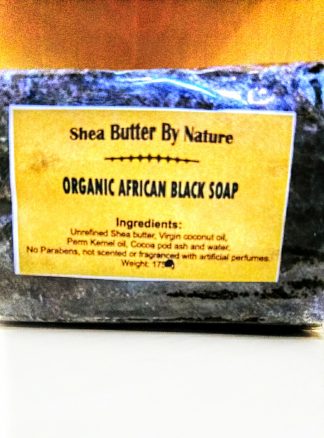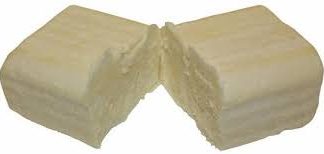Organic African Black Soap
For hundreds of years, women of West Africa – particularly in Ghana – made and used a vegetable-based soap to gently cleanse skin and hair. Known as African black soap to the West, locally it is called alata simena, sabulun salo, ose dudu, and anago soap.
Made with secret recipes passed down from generation to generation, there are several formulations of African black soap on the market today that may add in oats, honey, or aloe. But the core ingredients of traditionally made African black soap include native plants like plantain skins, cocoa pods, shea tree bark, or palm tree leaves. Once plant matter is collected, it is first sun dried and then roasted at a consistent temperature until it turns into ash. The ash is then added to water and various fats like palm oil, coconut oil, shea butter, cocoa butter, and palm kernel oil. This mixture is then heated and hand-stirred for a least 24 hours until it begins to solidify before it’s scooped out and left to cure for two weeks.
Showing all 5 results
-

Organic African Black Soap
R99.95 Add to Cart -

Organic Unrefined Shea Butter 250ml
R199.90 Add to Cart -

Organic Unrefined Shea Butter 1kg
R449.90 Add to Cart -

Organic African Black Soap X 5
R450.00 Add to Cart -

Organic African Black Soap X 10
R799.90 Add to Cart
Showing all 5 results


